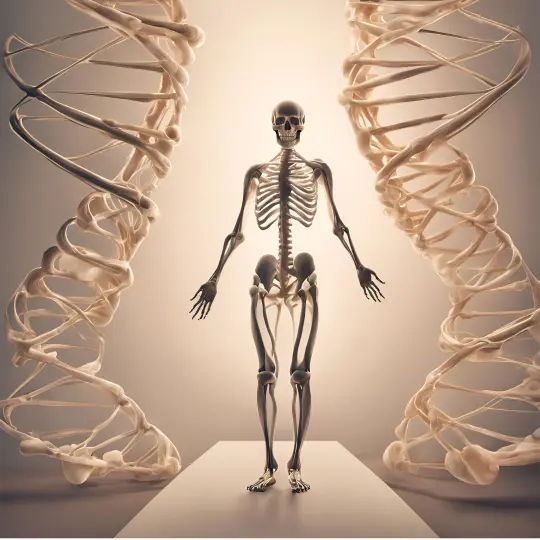Scylex Lab
25-Oct-2024
How Do Genes Impact Calcium Status?
Calcium is essential for a wide range of physiological processes, from bone formation and muscle contraction to nerve function and blood clotting. Genetic variations can impact calcium absorption and metabolism affecting how the body regulates calcium levels.
The Role of Calcium in the Body
It’s important for the body to be able to regulate calcium levels within an ideal range. When calcium levels in the blood are low, the body responds by drawing calcium from the bones. Overtime, this can lead to severe bone loss and osteoporosis and an increased risk of bone breaks and fractures.
While most people are aware that calcium is a factor in creating strong bones, many may not know about it’s vital role in heart function, muscle movements, and nerve signaling. Deficiency in calcium may result in muscle spasms, elevated blood pressure, and, in severe cases, cardiac irregularities.
Maintaining adequate calcium levels is critical for overall health. Understanding genetic influences on calcium status allows for more personalized dietary and supplemental strategies to prevent deficiency and further health issues.
Key Pathways in Calcium Homeostasis
Certain single nucleotide polymorphisms (SNPs) have been linked to calcium regulation. Differences in these polymorphisms can lead to variations in blood calcium levels or renal calcium excretion, which would suggest that one’s calcium needs are quite variable and may highly depend on these genetic factors.
Kidneys: The kidneys are vital in maintaining calcium balance through the process of reabsorption. The CASR (calcium-sensing receptor) gene in kidney cells detects shifts in blood calcium levels and adjusts reabsorption as needed. Variations in the CASR gene can influence how effectively the kidneys regulate calcium, affecting overall calcium balance and the risk of conditions such as high or low calcium levels (hypercalcemia or hypocalcemia).
Parathyroid Gland: The parathyroid glands regulate calcium levels by secreting parathyroid hormone (PTH) in response to low blood calcium. Vitamin D receptor (VDR) genes are critical for how effectively PTH and vitamin D work together to maintain calcium homeostasis. Variations in the VDR gene can influence how well vitamin D facilitates calcium absorption from the intestines and reduces calcium loss through the kidneys, directly impacting bone health.
Bone Metabolism: Bone serves as the primary reservoir for calcium in the body. The CYP24A1 gene is responsible for breaking down active vitamin D, which controls the amount of calcium and phosphate absorbed from the intestines into the blood stream. This activity then influences how calcium is deposited into the bones. Mutations or polymorphisms in the CYP24A1 gene can alter bone mineral density by disrupting the balance between bone formation and resorption. Overtime as calcium homeostasis is disrupted there is an increased risk for osteoporosis and bone fractures.
Interventions for Calcium Deficiency
The following strategies can help improve calcium levels and bone health, especially when genetic factors are considered:
Diet and Supplementation: Depending on genetic results, individuals may benefit from increasing their intake of calcium rich foods such as dairy products or leafy greens or opting for calcium supplements. Vitamin D supplementation may also be recommended as it may help improve the absorption of calcium.
Lifestyle Adjustments: Adhering to a fitness routine that includes weight-bearing exercises is crucial for supporting bone health, especially in those with genetic predispositions to low calcium levels.
Monitoring and Adjustments: Regular testing of serum calcium and vitamin D levels helps ensure that genetic susceptibilities are managed effectively. Integrating nutrigenomics results into clinical care can guide the adjustment of supplementation and diet plans.
Summary
Exploring the genetic factors that regulate calcium homeostasis offers new ways to manage and prevent calcium deficiencies. Critical genes like CASR, VDR, and CYP24A1 play pivotal roles in calcium absorption, metabolism, and storage within the body. Identifying variations in these genes enables personalized and preventative approaches to enhance calcium balance, strengthen bone health, and reduce the risk of chronic conditions linked to calcium imbalances.
Nutrigenomics testing can help you gain more insight into your calcium absorption and metabolism, providing a personalized approach to maintaining optimal calcium levels to support bone health and prevent calcium-related issues.


